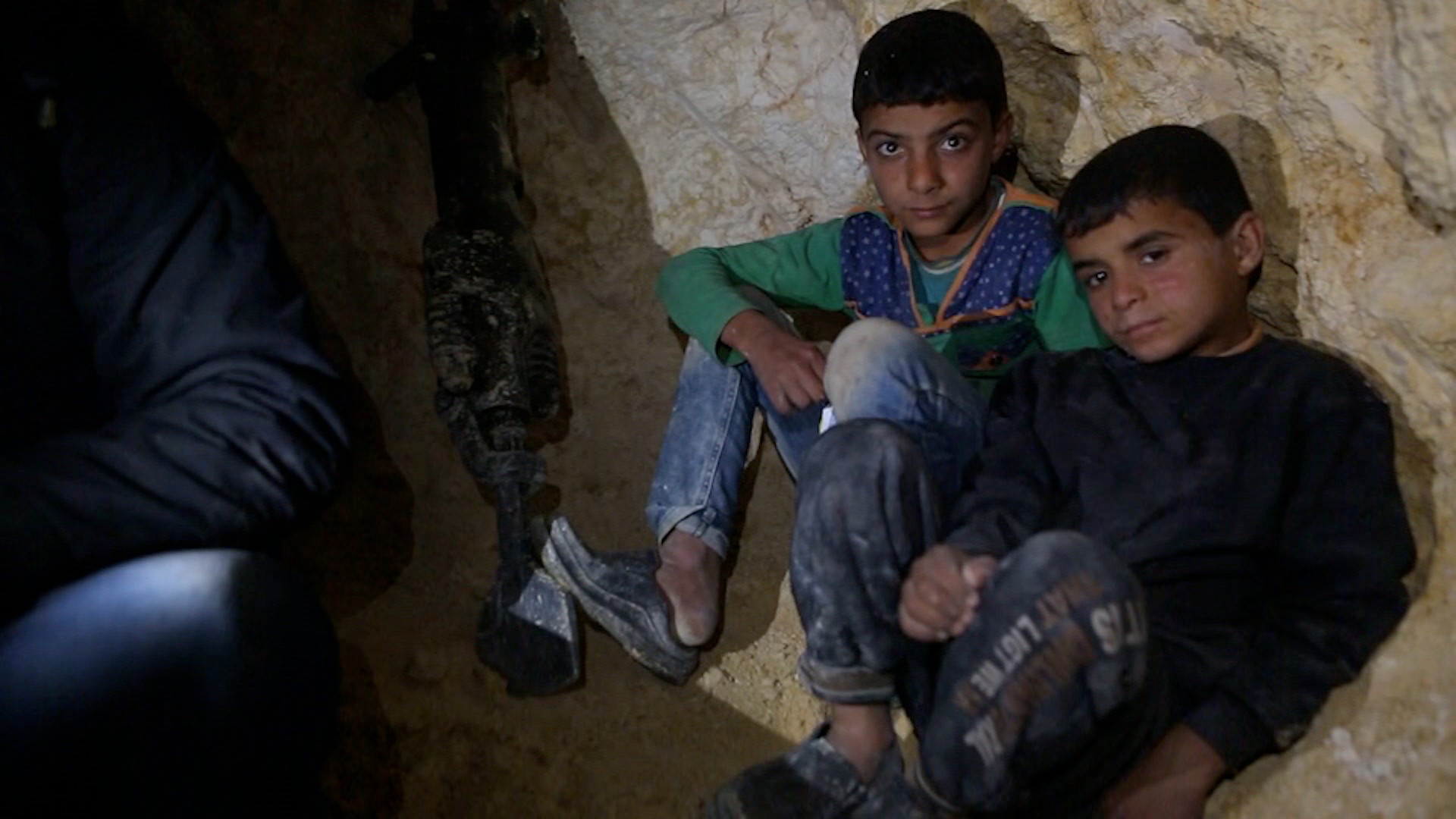International Rescue Committee
This is an opinion piece by 27-year-old Abdullah*, who works as a community health worker for one of the International Rescue Committee’s local partner organizations in Idlib, a city in northwestern Syria.Abdullah says depression and other mental health problems are rampant across the city where families are facing constant airstrikes, chronic shortages of food and medicine and widespread unemployment. Available data shows that half of all Syrians in the country are in need of mental health support. Prior to the outbreak of war seven years ago, there were around 100 psychiatrists and a limited number of psychologists in Syria for 22 million people—the World Health Organization estimates that 50 percent of psychiatrists have fled the country.The bombs and missiles are getting stronger by the day. There were two weeks of continuous bomb and missile attacks. When it’s calm, my colleagues and I make home visits to provide psychological support to individuals and families, but if there is fighting in the area, we can’t move from the health center.We are still working and trying not to stop until the fighting stops. Recently, we had to stop working altogether for one day because of the intense fighting. If God wills, this will end soon.In Idlib, Syrians suffer from depression. About 90 percent of depression cases are caused by the war. They are sad, do not love anything anymore, and many desire death instead of living this way. Before the war, I remember wanting to graduate, get a job, get married, build a house. Now, my own family is broken. One of my brothers died in the bombing and another fled. Some of my sisters left too. My younger brothers have no future because there are no schools left - they are open a couple of days a week, and when one school is attacked, the others close out of fear. Schools are being used as shelters because they are safer than houses. Children are afraid, we are worried about their mental health and inability to go to school.
Watch some more video from VICE:
My sister was diagnosed with extreme depression after my brother died. She was so sad about what happened to our family, isolated, unable to do things around the house or activities she usually enjoyed. She’s now on antidepressants and has shown great improvement. I have tried to support her along the way. We are remaining here, at home in Idlib, because there is no place like home.About a week ago, I went to visit a family at their home—you couldn’t imagine the situation. I found four men between the ages 18-40—all of them paralyzed with mental disabilities. Both parents are old, and cannot work. It was raining hard that day and they didn’t have a heater. I asked myself, what can I give them? I don’t know. They said: “Please just bring us medicine and God will appreciate your kindness.” Frankly, they needed more than just medicine: they needed heaters and food, a relief from their poverty. The mother didn’t talk very much, but what I saw in her eyes makes one crazy.I was able to get them medicine but they also needed to see a doctor. It’s been so long since they’ve seen one. A week later, I brought a car to their home, but it was so hard, they are adult and disabled. We managed to get them into the car and started driving - and then fighting began again. We couldn’t go on, we had to turn back. I couldn’t take them to the doctor, the only thing I could do was give them two bottles of medicine. The situation impacted me a lot. I stayed in a bad mood all day.Before the war, we had money and our economy was good. Now poverty is everywhere. Everything is expensive, from bread to vegetables to fuel. We get help here and there. Only a small amount of aid comes through since the roads are blocked so most people borrow from others or beg on the streets. It’s worst for the poorer families, for example, they can only eat meat every 2-3 months. Eggs are rare, milk is unaffordable. We have many cases of malnutrition, especially among children, because of that.I work to make a living. But I also work because of the impact of the war on people. Sometimes, I have no hope. But it comes back when I see the positive impact of my work. It comes back when I see cases nobody has yet seen, and I am able to give people support, motivate them in a positive way. I face a lot of trauma in my daily life, and this job helped me, too. Then I feel there is still hope. It helps us believe there are still good things in life, that we can do something to change human life, that people still care about each other.I want to tell the world that the people in Idlib suffer from extreme poverty, heavy shelling and fear of the invasion, internal strife and its consequences. As well as suffering from permanent internal displacement between the regions. And that the civilians in Syria are victims of the conflict of the major powers in Syria.*This is a pseudonym to protect his identity.Make sure to donate to the IRC to give Syria refugees hope.
Advertisement
Watch some more video from VICE:

My sister was diagnosed with extreme depression after my brother died. She was so sad about what happened to our family, isolated, unable to do things around the house or activities she usually enjoyed. She’s now on antidepressants and has shown great improvement. I have tried to support her along the way. We are remaining here, at home in Idlib, because there is no place like home.
Advertisement
Advertisement